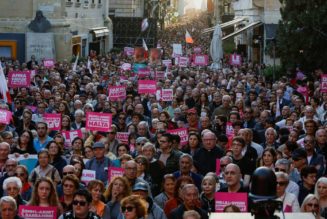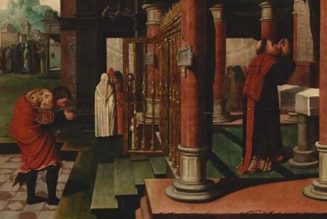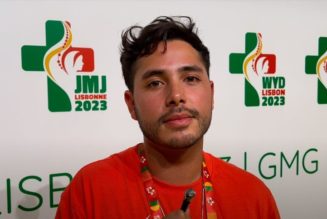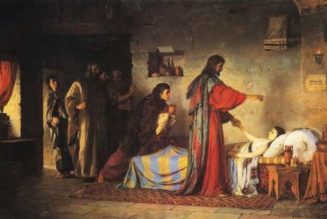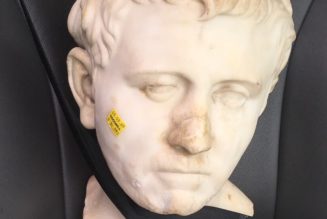ULAANBAATAR – When Pope Francis visited Mongolia in late August and early September, it was styled as the ultimate feel-good papal outing. Here was the “Pope of the Peripheries” travelling to the most sparsely populated country on earth, with just 3.3 million people scattered across a total landmass larger than that of England, France and Germany combined.
The entire Catholic population stood at just 1,450, making this the very first papal trip in history in which the pope actually stood a chance of greeting every single Catholic in the country before he was done.
Mongolians themselves, even those with no Catholic ties at all, seemed delighted by the unexpected attention.
In a Crux interview this week, Galbadrakh “Gala” Tsendbaatar, lead singer of Mongolia’s celebrated folk metal band “The Hu,” spoke rhapsodically about how magnificent it was for Francis to visit his country, gushing that the pontiff and the band basically have a shared mission to save the world – and this despite the fact that Tsendbaatar is an ardent practitioner of Tengerism, the indigenous spirituality of Mongolia that worships the eternal blue sky.
The visit also put a spotlight on the youngest cardinal of the Catholic church, 49-year-old Giorgio Marengo, a native of Piedmont in northern Italy who became a Consolata missionary and has served as apostolic prefect of Mongolia since 2020. A charming, articulate figure, Marengo also wins high marks for inculturation – as one observer here put it, he’s got the best facility in the Mongolian language “of any white guy I’ve ever seen.”
Yet under the heading that it’s never easy being pope, the question facing Pope Francis now is whether, after all the political capital generated by the trip, he might be willing to spend a little of it to try to move the ball on a core concern.
Throughout Francis’s five days in Mongolia, he repeatedly praised the country’s commitment to religious freedom. In part, that was a descriptive homage, reflecting the remarkably tolerant policies associated with the pax mongolica under the Mongol empire of the 13th and 14th centuries. In part, however, the pope’s rhetoric was also hortatory, since he knew full well that this proud tradition of tolerance sometimes is honored more in the breach than the observance these days.
In general, Mongols don’t get overly worked up over religion, in part because of a post-Soviet legacy of broad religious indifference. Nonetheless, the Mongolian government does pay careful attention, worried that religious trajectories could upset Mongolia’s careful balancing act in maintaining good relations with its two superpower neighbors, China and Russia, without being subsumed by either one.
As a result, the government sometimes imposes restrictions on religion which arguably violate not only broad moral standards but also Mongolia’s own constitution, which provides for freedom of conscience and religion and prohibits discrimination based on religion.
One place where the rubber hits the road is with the issuance of what’s known as “religious activity permits,” which basically authorizes a religious group to either operate an existing facility or construct a new one for purposes of worship. According to the U.S. State Department’s 2022 Report on International Religious Freedom, the Ulaanbaatar city council has not issued any new such permits since 2018, leaving 59 applications pending at the end of last year, some of them for years.
There are other restrictions as well, including difficulties with obtaining visas for foreign religious personnel and the practice of frequent audits by officers from tax, immigration, local government, intelligence, and other agencies, in ways religious groups often see as intimidating. Such forms of harassment affect all religious groups, including majority Buddhists along with the Baha’i, Muslims, Protestant Evangelicals, Mormons, Jehovah’s Witnesses, Russian Orthodox, Catholics, and the Unification Church.
Notably, local observers say that four months after the pope came and went, there’s no sign that his appeals for religious freedom put a dent in any of these policies.
How to explain the restrictions? Most local observers seem to think that while they more or less affect all religious groups equally, they’re driven mostly by concerns about Buddhism, which is practiced by about 51 percent of the population, and especially fears that China might attempt to exert growing influence within Mongolian Buddhism as a round-about way of pressuring the entire country.
That possibility was thrown into sharp relief earlier this year when the Dalai Lama recognized a eight-year-old boy, born in the United States but of Mongolian heritage, as the 10th reincarnation of the “Jebtsundamba Khutughtu,” the spiritual leader of Mongolian Buddhism, just as the Dalai and Panchen Lamas are the supreme leaders in Tibetan Buddhism. China claims the exclusive right to recognize “living Buddhas,” including with the Tibetan tradition also practiced in Mongolia, which makes the Dalai Lama’s recognition tantamount to an act of defiance.
The fear, therefore, is that China might attempt to put money and personnel into hijacking Mongolian Buddhism, with the aim of forcing the government to become more subservient to Beijing, helping to explain why the Mongolian government is nervous about opening up on the religious front.
However realistic such concerns may be, the net result is that the Mongolian government effectively is hamstringing all forms of religious activity in the country, despite the lofty rhetoric about religious freedom heard when the pope was in town.
Should Pope Francis call out the Mongolians?
On the one hand, he might feel reluctant to do so, especially given the positive vibes the trip generated at the time and the new possibilities it appeared to open up for the local Catholic community. On Christmas Eve, Marengo baptized three adult converts, all women, and certainly the pope would be cautious about doing or saying anything that could inadvertently make life more difficult for the country’s tiny Catholic flock.
There’s also the fact that anything Francis might say about religious freedom in Mongolia also will have echoes in China, where the Vatican is notoriously reluctant to take any step that might upset the applecart – even if, in this counter-intuitive instance, China might actually welcome an appeal for religious freedom in a neighboring country, if it believes it might assist its own strategic objectives.
In any event, sometimes a feel-good narrative is only valuable when it’s put to the test.
Right now, Pope Francis still enjoys enormous cachet here as the most important world leader to come to town in living memory, lifting Mongolian spirits and boosting national pride. Perhaps the issue of religious freedom might afford the pontiff a chance to take that cachet out for a spin, and see what it can do.
